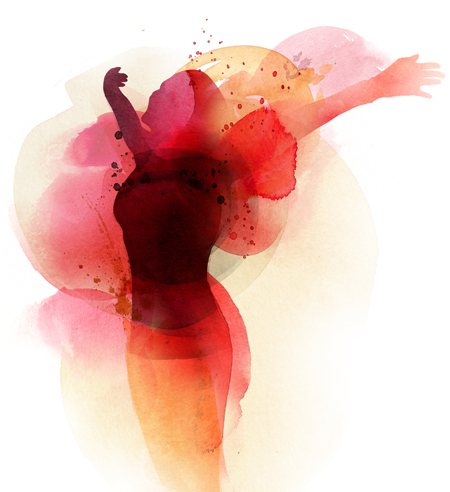 You’re tired of it, yet you continue to use.
You’re tired of it, yet you continue to use.
You started using when you were young or just to de-stress.
You didn’t think anything of it. At first, it meant nothing to you.
Fast forward… you find yourself using regularly, and now, it’s not even helping as much. Yet, you go on.
You’re turned off by your choices. Others are also “turned off” from you. You want connection, yet that word or feeling seems so distant to reach. You feel misunderstood, and at times you even understand why others don’t ‘get it when you also tell yourself you don’t even know why you’re using at this point.
You feel alone, sad, confused, and overwhelmed. Your interest in engaging with others has diminished. Your pleasurable activities are no longer satisfying. You’re escaping, trying to give yourself ‘time.’
Time has passed, yet you feel in a rut. You’re embarrassed, with yourself, at this point. You shame and judge yourself constantly when you ask, “Why can’t I just stop?”
 You are more.
You are more.
You are more than your behavior choices.
You call yourself names or nicknames, maybe dabble with the word ‘f*k up.’ You feel angry at yourself since you know you can choose differently, yet the fear of failure stops you.
“What if I f*k up again? What if I can’t do this?”
So, you stall, although that voice in your head is taunting you for change.
Mario* had a high-demand job. He loved his field of work, but his work schedule kept him away from home. He was not spending time with his partner. When he had the time, he chose to drink a bottle of wine alone to just ‘relax.’ His partner felt alienated and disconnected. He felt bored and unseen.
Jules* has been using ketamine to ‘cope’ with the stress of his relationship, work, and family. He wants a baby. His partner does not. He wants to enjoy family time, but his partner is experiencing depressive symptoms. He feels alone and with no one to talk to. Ketamine has been his go-to tool. At first, he used socially, but now he uses daily to ‘silence’ the noise in his head.
 Substances are tools that distract you from the problem.
Substances are tools that distract you from the problem.
They distract from stress, unfulfilled relationship dynamics, self-esteem challenges, and trauma. When dissecting use, it’s the reason behind it,not the tool that matters. For many, that reason has gone unheard and unexplored for decades. Some even forget the reason existed as it lays dormant, waiting to be processed.
For many years, I worked with homeless populations where substances and mental health issues were a constant struggle. I heard story after story about why they began using, and I realized that two emotions drove them all: sadness and love.
Sadness
Overwhelming situations, outside of us or when internally processed, activate sadness as no one ‘chooses’ those situations for themselves. The more these situations accumulate, the more sadness becomes activated or compounded. When these situations occur during times of distress, we are less likely to process the emotions or feelings that come from them. That’s when the body invites in other emotional states or body-stress responses. Addressing this basic feeling is key to exploring the shift around those experiences.
Love
Unexpected situations that become overwhelming or traumatic tend to relate to feeling unsupported, unseen, or misunderstood. This translates to a disruption in inter- and intrapersonal relationships, for which one begins to feel “disconnected.” When using, lifestyle choices usually alienate you from loved ones becoming sad and feeling alone. Consequently, using becomes your identified best coping skill.
 But you can use different tools…
But you can use different tools…
Through our collaborative exploration, I’ll guide you as you venture into recognizing different aspects of yourself that have been dismissed, hence adding to your sadness.
Sessions will include meditation, guided visualization, parts-talk exercises, and movement exercises to support you in this journey. Each session will allow you to engage in conversation with yourself (and me) through exercises and discussions, allowing repressed emotions, imprints, or feelings to surface as we process them together.
We’ll talk about childhood, family, partners, stress, coping skills, boundaries, and more. After a couple of sessions, you’ll gain new tools by gaining the skill of listening to yourself from a different state of embodiment. As you strengthen the skill of listening to yourself, your wants, needs, and preferences, you’ll gain awareness and clarity of options that were not considered before.
As a trauma-informed counselor, I will share exercises that will allow you to ‘unblock’ information that has been dormant within you or in your body. The body holds stress or repressed emotions, so when accessed and ‘transmuted,’ it facilitates change or transformation. Re-introducing yourself to yourself is one of the intentions I will offer. I’ll support your practice of self-love by redefining your self-talk and narrative(s).
You’re not a fuckup!
You’ve just been relying on a tool that’s not serving you, and that can change. Sure, changing tools is scary, but I promise I’ll guide you every step.
I’ve helped countless individuals who wanted to achieve and maintain a sober life, and I can do the same for you.
Let’s connect the dots of your story and create a future that honors YOU!
If you’re ready for more, let’s talk about how I can help: (786) 571-6617.
*The names and stories above are composite narratives and have been changed for client confidentiality.

